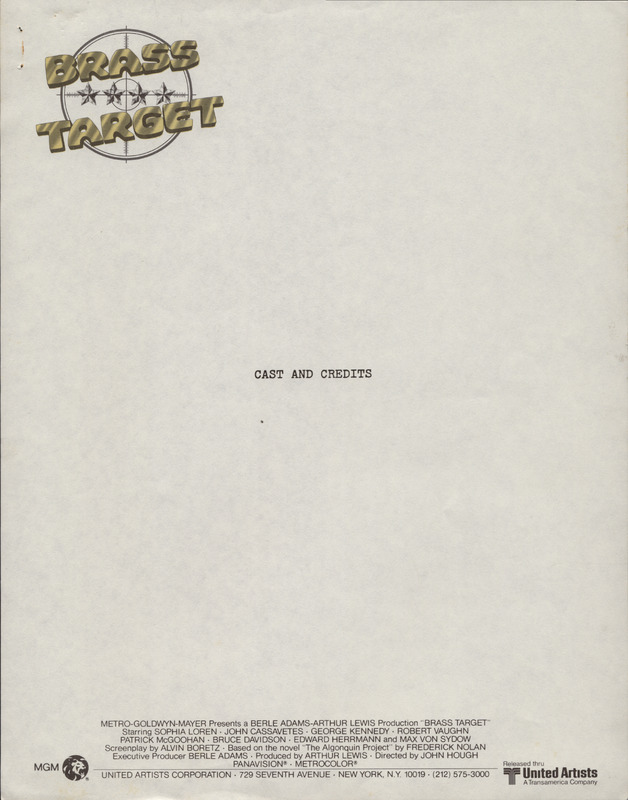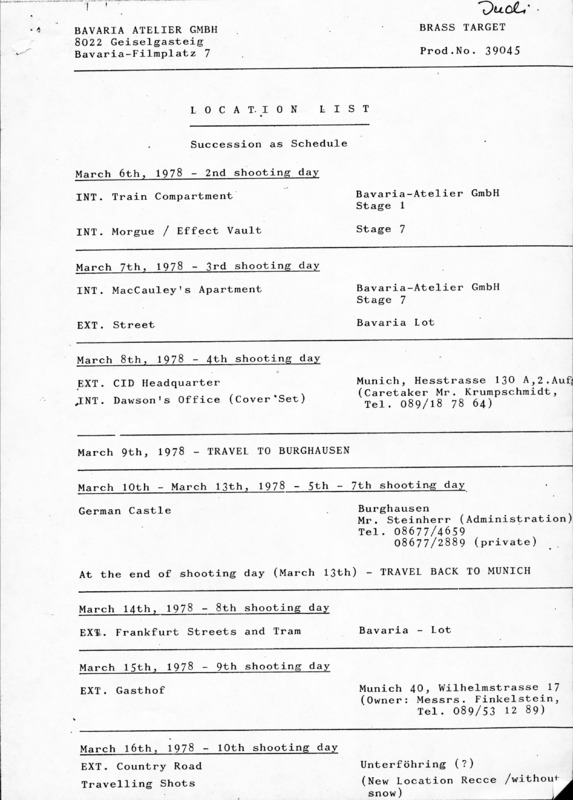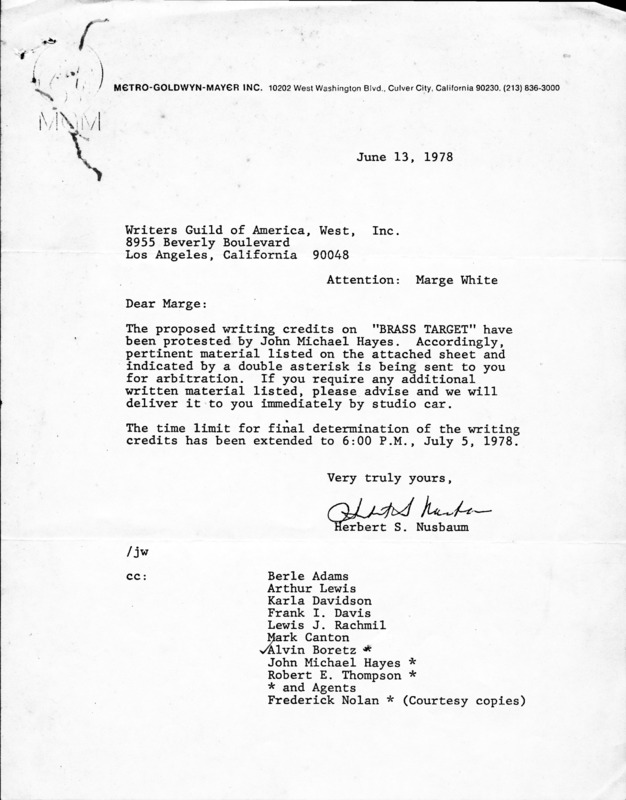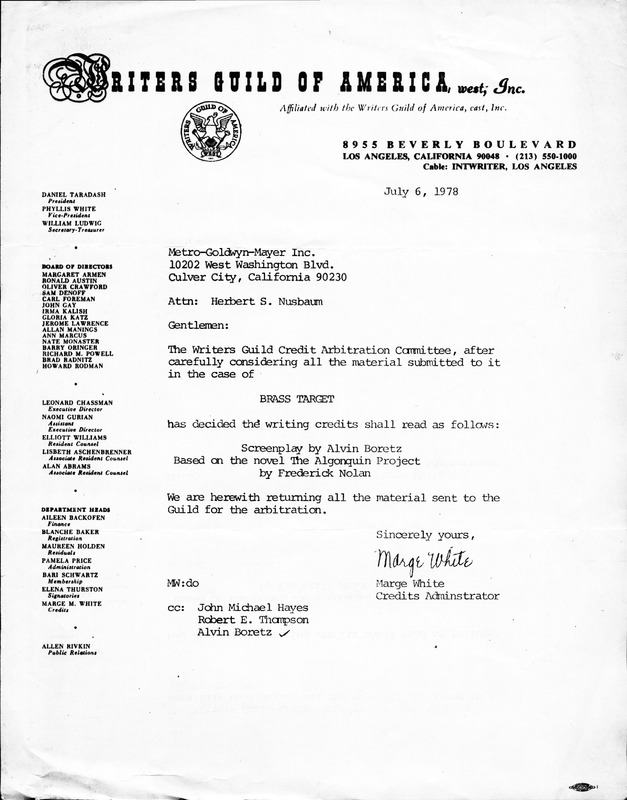Brass Target
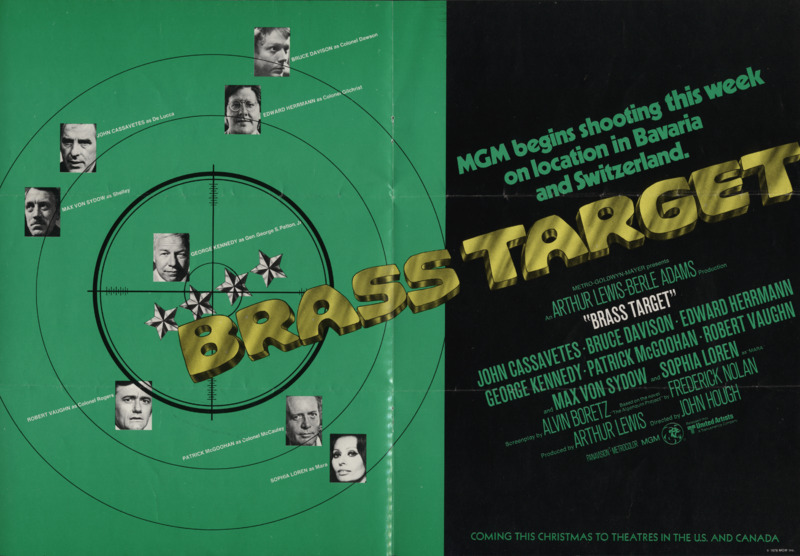
Brass Target, starring Sophia Loren and John Cassavetes, and directed by John Hough, was released in theaters on December 22nd, 1978. Based on Frederick Nolan's 1974 novel The Algonquin Project, Boretz's script explores the waning days of World War II by exploring the potential conspiracies that led to the death of General Patton and the dangerous mission that the protagonists Major Joe De Luca and Mara must embark upon to stop corrupt mutineers. However, not even the promise of suspense and espionage with the award-winning cast including Loren, Cassavetes, Max von Sydow, and George Kennedy, a script that Boretz adapted from a recent novel, and MGM as the production company could bolster the film's box office sales. Brass Target premiered to middling success with critics but only made roughly five million at the domestic box office.
When writing his first feature film script, Boretz understood that Hollywood was more likely to purchase scripts with stories "that someone else had taken a chance on, like a produced play or a published book," so he chose to adapt Nolan's recent novel on World War II and the possible conspiracies that might have occurred during General Patton's death. Boretz successfully pitched the film to MGM in 1977, and location shooting began on the project in March of 1978. The film was shot across Munich, Bavaria, Bulgaria, West Germany, and Switzerland until June.
Labeled as a "classy conspiracy thriller" by Roger Ebert and "the sort of picture that picks you up and takes you along with it into behind-the-scenes horrors" by The New York Post, Brass Target was noted as being well-written by Boretz and well-acted but the direction from Hough appeared lacking to some critics. Although this was Boretz's only feature film during his career, it did spark a long friendship between him and Sophia Loren. The pair would continue to exchange letters over the decades and even plan a second feature film together, "Summer After Dark" that would remain undeveloped. Brass Target succeeded in bringing Boretz's writing onto the big screen and allowed him to experience the film industry's unique triumphs and tribulations.
